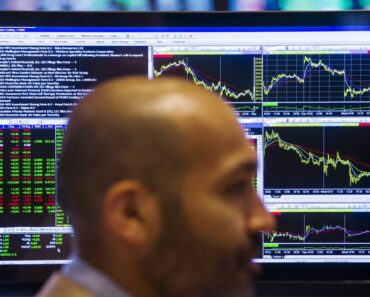This post was originally published on this site

(Reuters) – Most emerging Asia ex-China equity markets witnessed foreign outflows in February as strong U.S. economic data stirred worries that the Federal Reserve would keep interest rates higher for longer than anticipated.
Foreigners sold equities worth a net $2.1 billion in Thai, Indian, the Philippine and Vietnam markets, data from stock exchanges showed.
“We think the primary reason behind the weak FII flows in February was the profound shift in the market’s expectations of Fed’s rate-hike trajectory,” said Manishi Raychaudhuri, Asia-Pacific head of equity research at BNP Paribas (OTC:BNPQY).
“At the end of January, the market’s expectation of peak Fed Funds rate was 4.9%. By late February, it jumped to 5.5%.”
(Graphic: Monthly foreign investment flows into Asian equities, https://www.reuters.com/graphics/ASIA-EQUITY/ASIA-EQUITY/klpygnjogpg/chart.png)
U.S. consumer inflation rose higher than expected in January, while its job growth accelerated, prompting the change in sentiment towards the Fed’s policy.
The trend of money flowing from South Asia into North Asian equities continued in February due to China’s plans to reopen borders.
Thai equities suffered $1.28 billion worth of foreign outflows, the biggest monthly net selling by outsiders since April 2020.
Meanwhile, Indian and Philippine equities also recorded $647 million and $155 million worth of foreign outflows.
However, foreigners purchased South Korean and Taiwanese stocks for a second straight month, with inflows amounting to $918 million and $877 million, respectively.
“For India, the Adani Group saga has triggered some fears of a widespread financial contagion in February, which drove some de-risking in India equities among foreign investors,” said Yeap Jun Rong, strategist at IG.
On the other hand, Indonesian equities received $378 million in February after seeing outflows worth $1.55 billion in the previous two months.
“Looking ahead, a key factor will be whether Indonesia will continue to demonstrate economic growth, such as continued loan growth by big banks and positive consumption data,” said Jerry Goh, investment manager of Asian equities at fund house abrdn.


